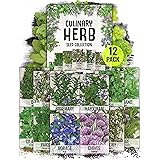Land Guard 8x4x3ft Rectangular Galvanized Raised Garden Beds, 36" Tall Large-Capacity Metal Planter Box Outdoor, Durable Deep Raised Garden Bed, Raised Beds for Gardening Vegetables, Classic Silver
23% OffDIIYIV Galvanized Raised Garden Bed with Legs,2PCS 48×18×30in Elevated Planter Box for Backyard,Outdoor Garden, Patio, Balcony, 300lb Capacity,Sliver
18% OffComposting is a natural process that involves the decomposition of organic matter, such as food scraps and yard waste. During this process, bacteria, fungi, and other microorganisms break down these materials into smaller pieces, which eventually turn into nutrient-rich soil known as compost. Composting not only provides an eco-friendly way to dispose of household waste but also offers several benefits for your garden and the environment. Here are some reasons why you should consider starting a compost pile in your backyard:
1. The Environmental Benefits of Composting
Composting reduces greenhouse gas emissions by diverting organic waste from landfills where it would decompose without oxygen and release methane, a potent greenhouse gas. Instead, when properly managed, composting creates carbon dioxide, which has a lower global warming potential than methane. Additionally, compost can help improve soil health, reduce erosion, and retain moisture, all of which contribute to better water conservation and reduced reliance on irrigation systems.
2. Tips for Starting Your Own Compost Pile
Starting a compost pile may seem daunting at first, but with the right tools and techniques, anyone can do it! First, choose a location for your compost pile that receives plenty of sunlight and has good drainage. Next, gather your ingredients, including brown material (such as leaves or shredded paper), green material (like grass clippings or fruit peels), and water. Mix them together in a pile, making sure to aerate the mixture regularly to encourage airflow and prevent odors. Finally, be patient and wait for nature to take its course – composting can take anywhere from two weeks to six months depending on the size and composition of your pile.
3. Using Compost to Improve Soil Health in Your Garden
Once your compost is ready, use it to amend your garden soil. Compost adds essential nutrients like nitrogen, phosphorus, and potassium to the soil, improving plant growth and reducing the need for chemical fertilizers. It also helps to increase soil structure, allowing roots to penetrate more easily and helping to retain moisture during dry spells. In addition, using compost can suppress diseases and pests, creating a healthier and more sustainable growing environment.
4. Common Mistakes People Make When Composting
Despite its many benefits, there are several common mistakes people make when composting. One mistake is not mixing the proper ratio of browns and greens. Another is not turning the pile frequently enough to promote airflow. Additionally, adding meat, dairy products, or pet waste to a compost pile can attract unwanted pests and create unpleasant odors. By avoiding these mistakes and following best practices for composting, you can ensure that your efforts result in high-quality soil amendment that benefits both your garden and the environment.

In conclusion, composting is a simple yet powerful tool for promoting environmental sustainability and improving soil health in your garden. With the right approach, anyone can start their own compost pile and reap the benefits of this natural process.
Related Content
- This startup is making compostable plastic out of seaweed – Fast Company
- Organic Waste Composting Machine Market To Observe Exponential Growth By 2021-2028 …
- Don’t Do Another Search To Find People Until You Read This
- VIDEO: Clean North announces winners of inaugural environmental awards
- Food Waste Composting Machine Market 2021-2027 Business Outlook, Critical Insight and …















































